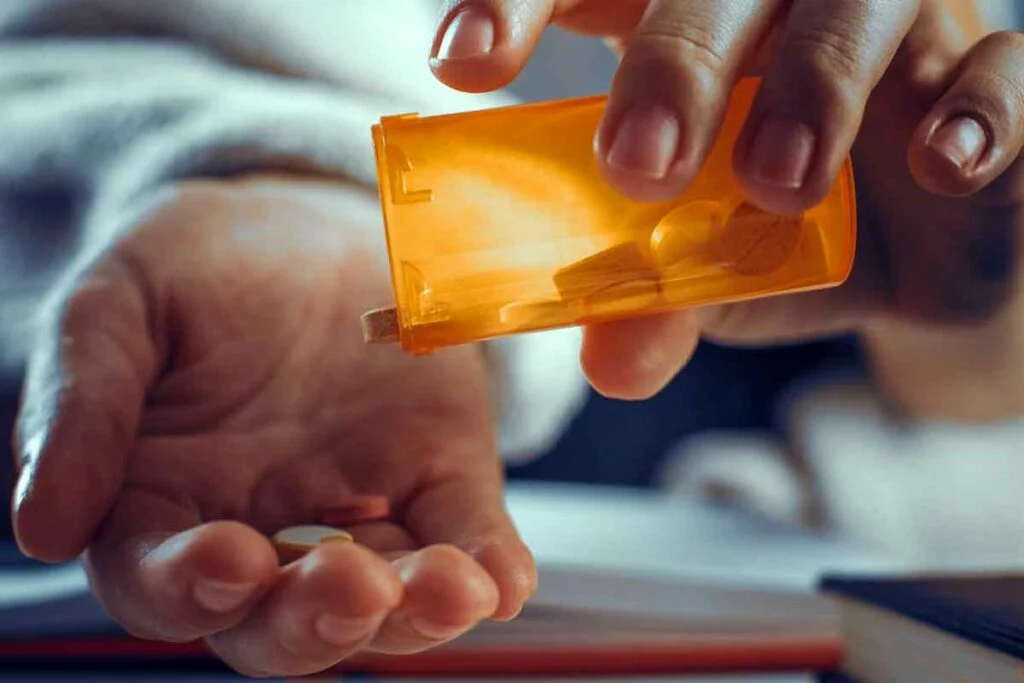One of the common misconceptions regarding addiction is that it always involves street drugs. Heroin and cocaine are the most often abused street drugs. While it is true that most abused drugs are street drugs, a surprising proportion of substance abusers are reliant on medications prescribed by their doctors. As a result, it is critical to learn about the most abused prescription drugs and how you or someone you care about can receive treatment.
Which Are the Most Abused Prescription Drugs?
Even if a doctor prescribes a prescription, that doesn’t imply a person can’t become addicted to it. The danger of long-term addiction is evident whether the doctor prescribes a substance to help alleviate a person’s pain, calm panic or worry, or assist them in staying focused and paying attention. The following are three of today’s most abused prescription drug categories:
- CNS Depressants. CNS depressants, which consist of benzodiazepines (e.g., Valium, Xanax) and barbiturates, are often administered to treat issues such as anxiety, sleep difficulties, and seizures. These drugs boost the inhibitory effects of the neurotransmitter GABA, resulting in sedation and relaxation. While they are helpful when used under proper medical supervision, their abuse can have negative consequences. CNS depressant abusers may experience drowsiness, respiratory depression, and poor coordination. Tolerance, dependence, and withdrawal symptoms can result from prolonged use, making it critical for healthcare practitioners to properly monitor and manage their prescriptions.
- Prescription opioids, such as hydrocodone (Vicodin), oxycodone (OxyContin), and morphine, are potent pain medications that are often used for acute and chronic pain disorders. Opioids reduce pain perception by attaching to opioid receptors in the spinal cord and the brain. The exhilaration caused by these substances, however, can lead to overuse and addiction. The misuse of opioids has reached epidemic proportions, resulting in a major public health problem. Individuals who abuse opioids may develop physical dependence and tolerance, as well as an increased risk of overdose, emphasizing the significance of safe prescribing procedures, patient education, and addiction treatment resources.
- Prescription stimulants like Adderall and Ritalin are frequently used to treat attention deficit hyperactivity disorder (ADHD). These drugs operate by raising neurotransmitter levels such as dopamine and norepinephrine, which boosts focus and impulse control. Stimulants, when used as directed, can be useful to those with ADHD. When they are abused, however, they can lead to increased energy, euphoria, and alertness. Stimulant abuse can also lead to cardiovascular problems, anxiety, and addiction. To reduce the risk of stimulant prescription abuse, healthcare providers must properly diagnose patients for ADHD and monitor their response to stimulant medications.
Prescription Drug Addiction Treatment Options
Prescription drug addiction necessitates a holistic approach, and numerous treatment approaches can be beneficial in assisting individuals on their road to recovery.
- The first phase is frequently medically supervised detoxification to safely manage withdrawal symptoms. This procedure assists the body in eliminating the substance while also ensuring the individual’s physical and emotional well-being.
- Rehabilitation, including inpatient and outpatient. Individuals can focus on their recovery in an inpatient or residential rehabilitation program, which provides a structured and supportive atmosphere. Individuals who do not require round-the-clock supervision can benefit from outpatient treatment. Counseling, support groups, and educational sessions are all part of it, allowing individuals to integrate treatment into their regular lives while still obtaining critical support.
- Group therapy. For people in recovery, group therapy provides a unique and encouraging experience. Participants gain knowledgeable support, information, and guidance from their peers as well as a trained, compassionate facilitator when they are surrounded by people who have similar difficulties and life experiences. This also provides participants with an insight into the different phases of recovery, which helps to extend their understanding of what life is like beyond their addiction.
- Medication-assisted therapy (MAT). MAT combines medications, such as buprenorphine, methadone, or naltrexone, with counseling and behavioral therapy. MAT can be especially effective for opioid addiction, assisting in the management of cravings and withdrawal symptoms while also promoting long-term recovery.
Skyward Treatment Center Offers the Best Prescription Drug Addiction Treatment Programs in Houston, Texas.
Are you struggling with an addiction to a prescription drug? Worry no more. Skyward Treatment Center is a rehab facility located in a tranquil environment in Houston away from the hustles of your neighborhood.

